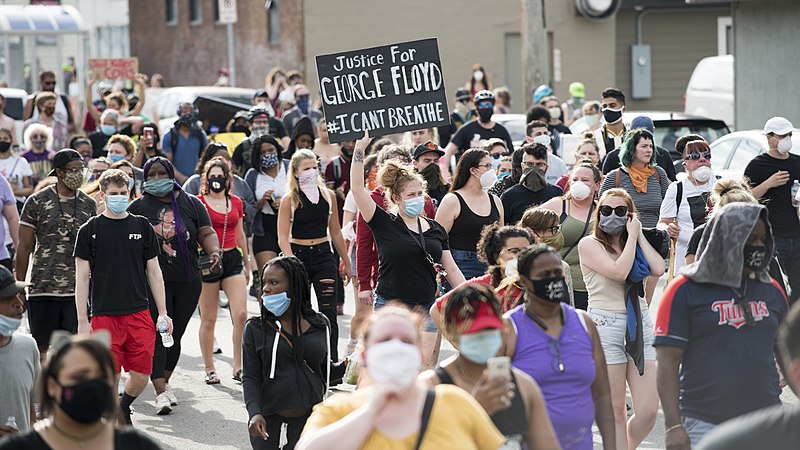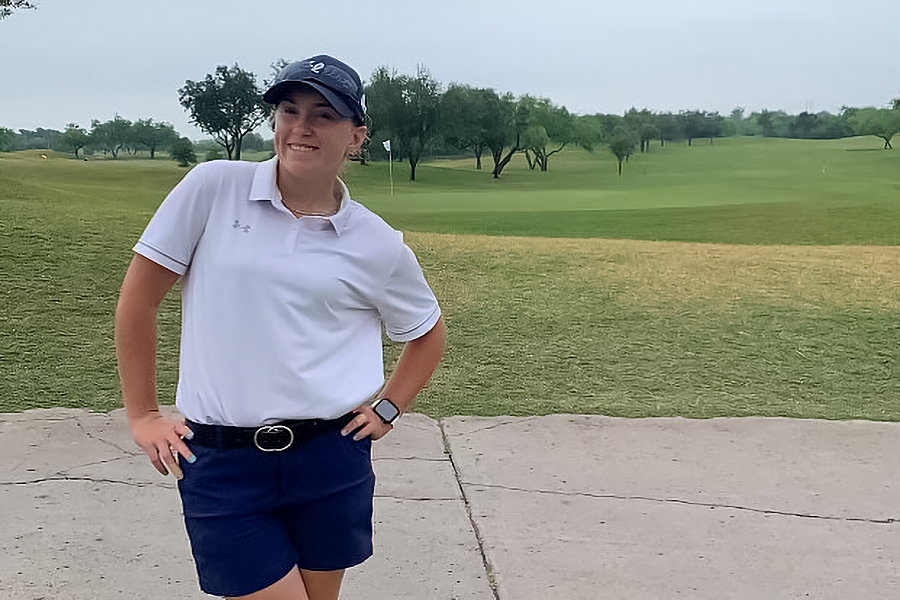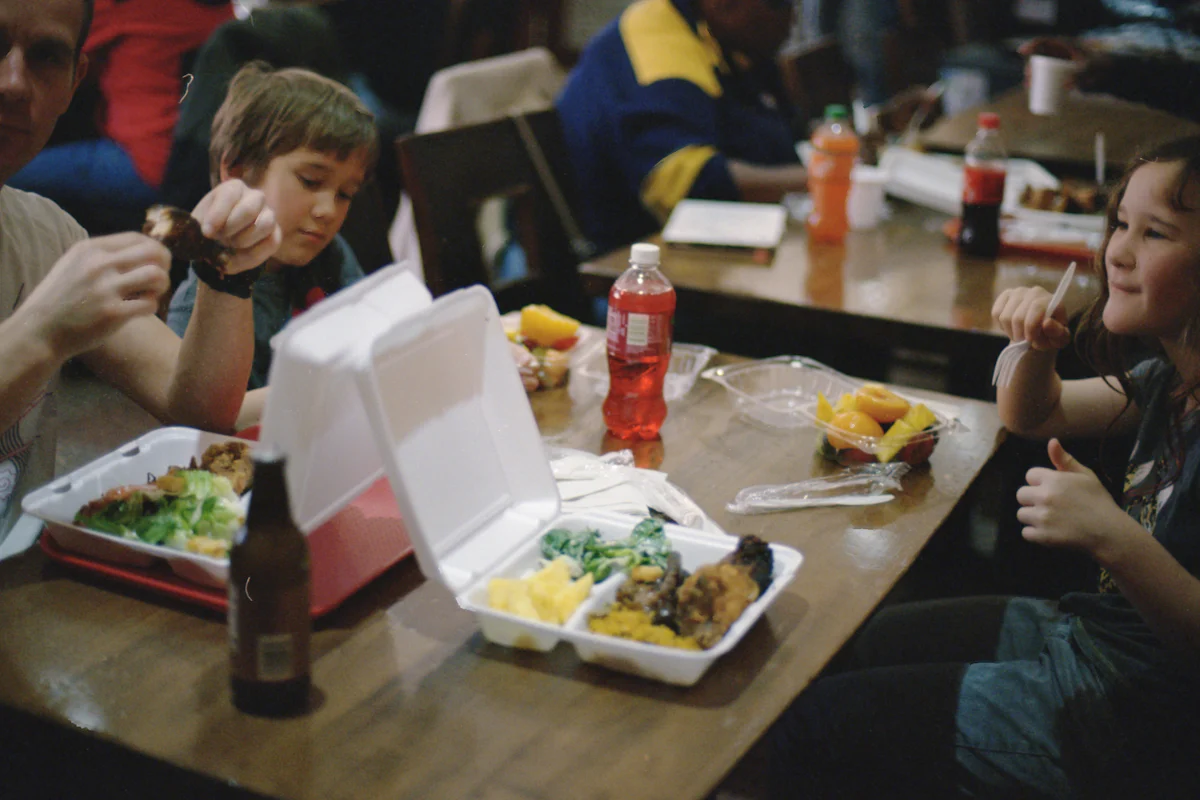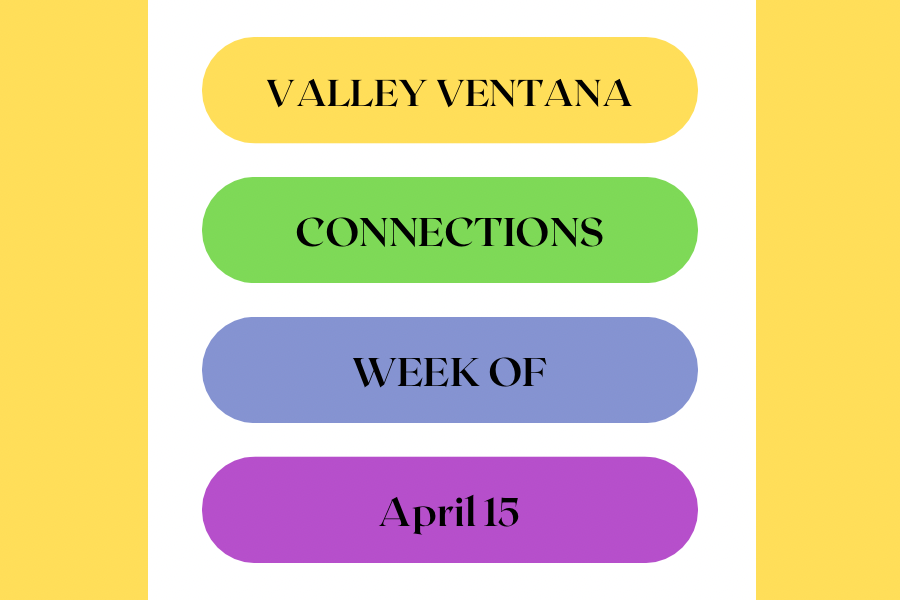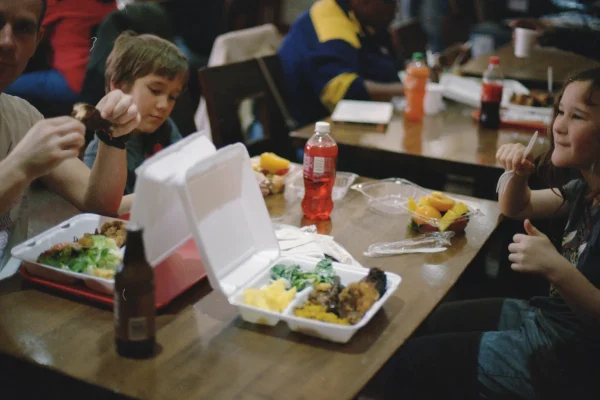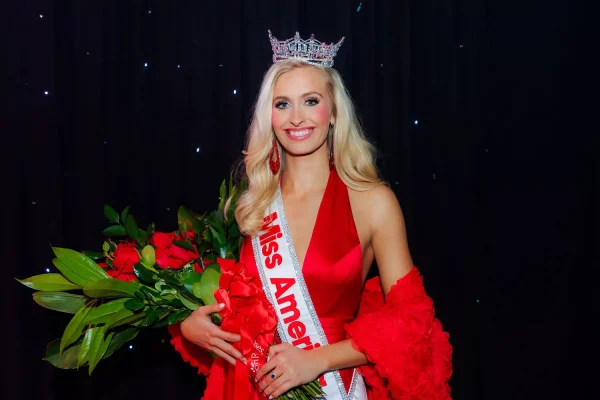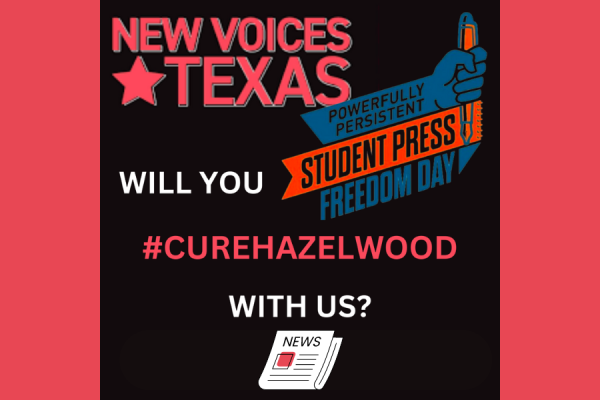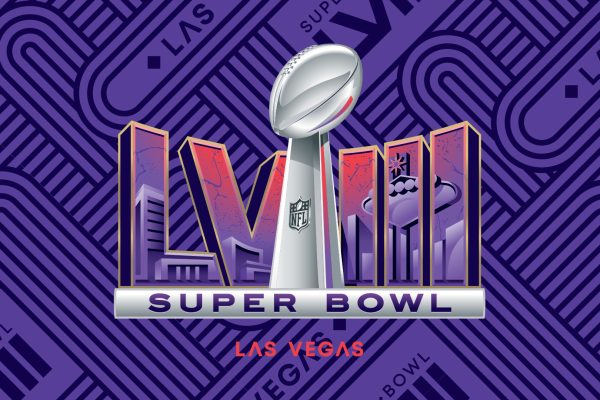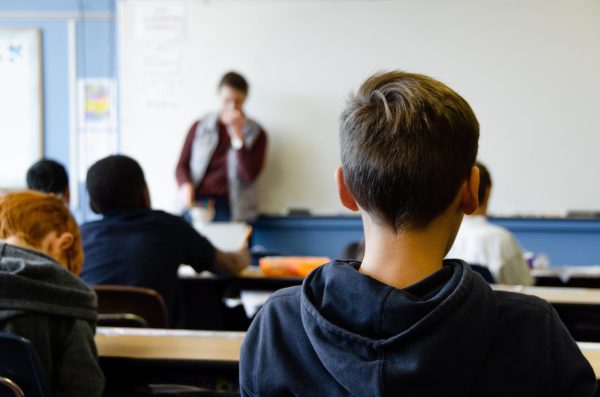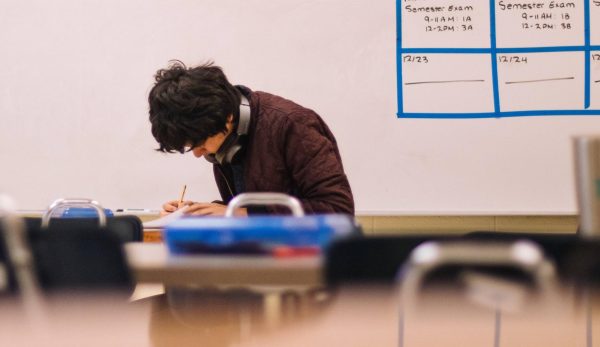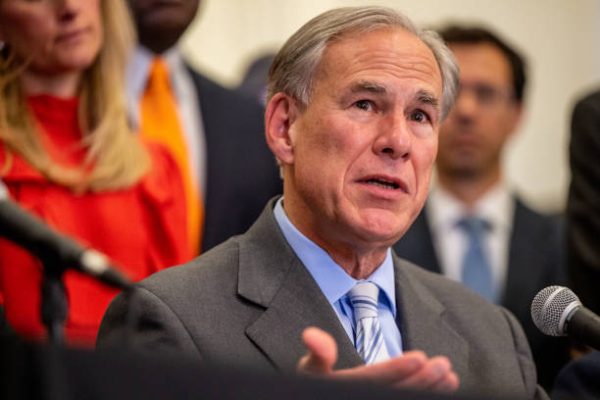He couldn’t breathe
George Floyd’s death wasn’t an isolated incident. It’s a wake-up call
Protesters flood the streets of Minneapolis after the murder of George Floyd. The incident sparked riots across the nation.
May 30, 2020
The events of the past week have rendered me speechless, a feeling once foreign to me but one which I increasingly am at the mercy of.
The Minneapolis police killed a black man who allegedly used a counterfeit $20 bill. They kneeled on his neck for eight minutes as he struggled for air and wheezed a haunting refrain: “I can’t breathe.”
It’s easy to isolate an incident and blame a “bad apple.” But if you want to view cops as apples, it suddenly seems like there are more bad than good. Is that true? Probably not. In fact, I’m confident that a large majority of cops truly want to do good, and do it. But cell phone footage from riots in Minneapolis, Houston, Atlanta, New York, Detroit, Washington DC… it sure paints law enforcement in a bad light.
One incident is incidental. Two are coincidental. But at some point, isolated incidents become part of a bigger trend. It took me a long time to realize the systemic issues minorities face in this country. It seemed to me that everything could be explained away by one vague issue or another. “They were just doing their job” or “they thought he had a gun” were common thoughts at that time.
Charles Kinsey changed that, to some degree. Kinsey was a mental health therapist who was shot while lying down with his hands in the air. The cop was only charged with negligence. It shook me – I tried to come up with some excuse in an attempt to find an answer other than broad, systemic issues. I couldn’t.
Then, a few days ago, I opened Twitter and saw a video of a white cop kneeling on a black man’s neck. For eight minutes. I watched testimonies from his Christian friends about how he was a person of peace for their outreach program, how he helped them drag baptismals down the street because of how much he cared about his community and improving it.
And then, suddenly – although there was nothing sudden about it – he was gone. This person who cared so deeply was gone, suffocated, and for what? Twenty bucks?
There are reports that George Floyd resisted arrest. That may be true. But even I know enough about law enforcement to know that suffocation isn’t exactly in the manual. There are systemic biases that I still cannot fully grasp, and that I will never bear the full brunt of. As a white male, I will never understand. But I can understand the pain of losing someone close to you. It hurts. And when it happens in a manner such as this, a disgusting act crafted by a broken system, that makes it even worse.
I sit awake every night staring at screens, watching cops arrest and fire at reporters as riots and flames blaze in the background. Protesters demanding justice are met with mace and tear gas. Our country is being torn apart, and I’m angry. Not at the protesters; I disagree with their methods, but I understand their frustrations.
No, I’m angry at the cop who kneeled on George Floyd’s neck for eight minutes until his life went out of him. I’m angry at the two cops who joined him on that body, and the fourth who stood guard.
I’m writing this at 3:00 a.m. because it’s all I can think to do. Racism didn’t magically end when MLK dreamed his dream. It just went underground. But after a while, every worm comes out of its hole. And now that it’s out in the sun, the world is seeing it for what it truly is. A living, breathing atrocity.
In John 4:1-44, Jesus approaches a Samaritan woman at a well. Jesus, a Jew, “should have” shunned her. Even ignoring her questionable past, she was a Samaritan. And Jews and Samaritans hated each other.
But Jesus was kind to her. He ignores animus in lieu of compassion. He offers her living water – salvation. And her story is just one of many in the Bible about caring for outcasts, regardless of their race (Luke 10:25-37), socioeconomic status (Mark 12:41-44) or health (Mark 1:40-45).
The Bible is very clear on this point: we shouldn’t shun or hate people with less than us. In fact, we are explicitly commanded to care for them; after all, as Jesus tells us in Matthew 5:3, “blessed are the poor in spirit, for theirs is the kingdom of heaven.”
As the apostle James writes in his epistle, “religion that is pure and undefiled before God the Father is this: to visit orphans and widows in their affliction, and to keep oneself unstained from the world.” (James 1:27)
I could rant for hours about the riots. On New Year’s Day, I stayed in a hotel connected to CNN HQ in Atlanta. My room overlooked the food court. As I write this, rioters are trying to burn it to the ground. While I was there, I visited the College Football Hall of Fame, which is now trashed and looted. I see videos of the rubble and can recall my footsteps right where that fire burns. It hit me harder than protests in Minneapolis ever could. But that doesn’t mean the situation is worse; I simply corrected my reaction to the situation before me.
It’s hard to connect with a concept. Maybe you saw the riots in Minneapolis and ignored them. It’s just one town, right? Just an isolated incident. But then Dallas burns and it becomes coincidental; Houston burns and you realize it’s a trend.
It’s hard to connect with a concept. That’s why it’s so difficult for some people to reckon with police brutality. They see a name and a face, but not a person. The victim might as well be a cartoon character; their family might as well not exist. When you realize that every cadaver had hopes and dreams, it gets a lot harder to blame them for their death.
I do my best to steer clear of politics, both in my writing and on my social media. It’s simply not worth losing friends over. But I will not stay silent on this matter because nothing about it is political. Murder is not a partisan issue. Take off your political lenses and pay attention to what’s going on around you. Few things unite Bernie Bros, Libertarians and the Alt-Right; brutal, unnecessary murder should be one of them.
I write this not as a perfect man, but as an improving one. To the rioters, I may not support the methods but I do support the cause. And to human beings everywhere: don’t let George Floyd’s death be in vain.
Remember his name and his personality. That he loved people, and that people loved him. Police brutality is not always a bad apple nor a mistake, though it can be those things. It’s a trend. A pattern. And it hasn’t just happened one too many times – one time is too many times. The status quo is no longer acceptable. It is time for change. It’s time to wake up and realize that we have a problem. And it’s up to us to fix it.

